Economics
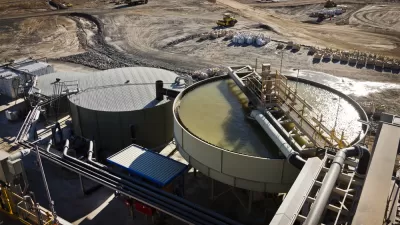
Demand for Lithium Drops as Global Electric Vehicle Sales Slump
It was long thought that a finite supply of lithium, a key element needed for electric vehicle batteries, would constrain the production of zero-emission vehicles, but the opposite happened: a slow down in EV demand has caused lithium prices to drop.
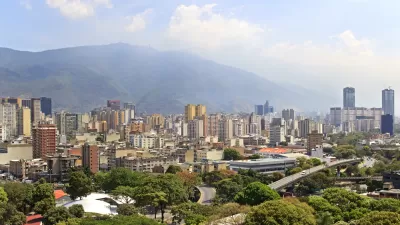
Lamenting the Decline of Caracas, Once the 'Jewel of Latin America'
"A generation ago, Venezuela’s capital was one of Latin America’s most thriving, glamorous cities; an oil-fuelled, tree-lined cauldron of culture that guidebooks hailed as a mecca for foodies, night owls and art fans."

Carbon Taxes and Climate Change Are Focus of Nobel Prize for Economics
The Nobel Prize was issued the same day as a landmark report by the IPCC predicting dire consequences if emissions aren't reduced. That's what William D. Nordhaus of Yale University has devoted his career to addressing.
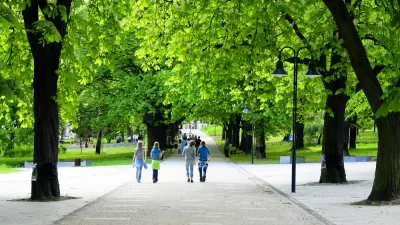
Report Details the Long-Term Financial Benefits of Green Design
This report estimates that U.S. cities could save half a trillion dollars by investing in "smart surface technologies." The study takes into account obvious factors like energy use and less intuitive ones like tourism revenues.
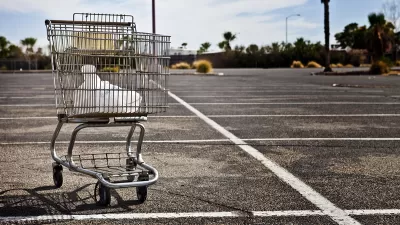
Brick and Mortar Continue to Struggle as Shoppers Scatter
Online options and oversaturation in some markets are leading to continued declines in physical storefronts around the country.
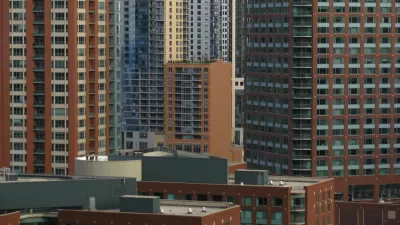
Chicago Pays Billions for Continued Segregation
The Urban Institute and the Metropolitan Planning Council studied the social and economic impacts of segregation in the Chicago region.

No Left Turns for UPS Trucks
To avoid accidents and conserve fuel, UPS trucks sometimes take circuitous routes on their deliveries, avoiding left turns.

Debate: Growing the Economy From the Supply Side
Two economists discuss how specific kinds of deregulation could speed up growth. They emphasize planning issues: local overregulation of development and the high cost of infrastructure, among others.
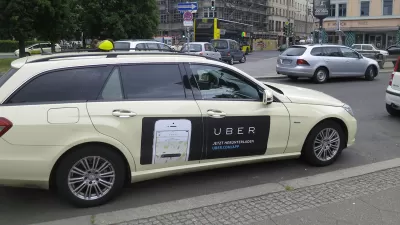
Uber's Demand Curve Is a Breakthrough for Users and Economists
Uber users are getting massive amounts of value from the service, according to a new analysis only possible in the post-transportation network company era.
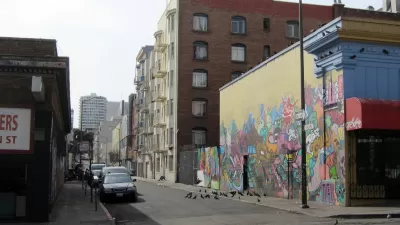
Op-Ed: Overcoming a New NIMBYism
Rick Jacobus argues that those who block new development on social justice grounds aren't fighting to win long-term. Building is necessary, but with it should come robust affordable housing mandates.
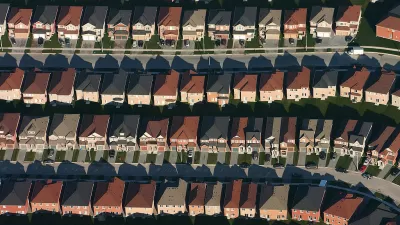
A Brief Explainer of the Urban vs Suburban Migration Inflow/Outflow Argument
Has the renaissance of our urban cores petered out or will the movement of suburban refugees to denser metro neighborhoods continue? Let's see what demographics and economics tell us.
This Weekend, Don't Forget: Cheap Gas Prices Aren't Always a Good Thing
There are a lot of people in this country that consider cheap gas to be a form of benevolence. Here are some reasons why they should curb their enthusiasm.
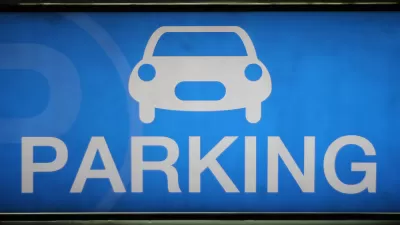
Portland Seeking the Right Price for New Permit Parking
With several Portland neighborhoods adding overnight permit parking, the city will be tackling the issue of how to price the new permits.
Highlights from CNU 23 Dallas
Having just wrapped up a great CNU in Dallas, April 29 through May 2, a collection of urbanists share some of the ideas that resonated the most.
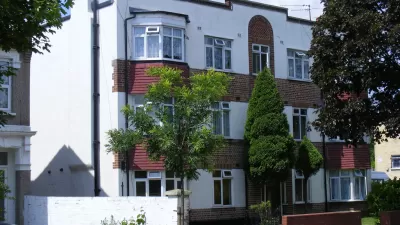
Single-Lot Densification Faces Zoning, Economic Challenges
Small-scale development on single lots is an alternative to the centralized mid-rise norm. But this kind of classic infilling may not be as easy as build-it-and-they-will-come.
The Far-Reaching, Lasting Effects of Low Oil Prices
With SUV sales up, car sales down, and mileage driven up, the effects of lower gas prices could soon extend to land use, making suburban and exurban commuting more affordable. Economists have a term for these effects: demand response.
'Inequality Happens?' Hopefully Not
Even local officials who prefer to talk about the fiscal rebound of their cities will not be able to accept escalating inequality as a byproduct of urban growth forever.
Say it Loud: Inequality is Bad for Everyone
There is an invisible culprit in the great scandal of inequality in America: your Econ 101 textbook. Go ahead, dig it out from that storage chest, and undoubtedly you’ll read that inequality, while we might not like it, is good for economic growth
Size of A City's Middle Class Predicts Poor's Economic Mobility
Researchers find that among the largest 100 metro regions in the U.S. , those with a larger middle class, provide higher economic mobility.
The Economic Argument for Bicycling
A new report from the League of American Bicyclists highlights studies from across the U.S. showing the economic benefits of biking.
Pagination
Urban Design for Planners 1: Software Tools
This six-course series explores essential urban design concepts using open source software and equips planners with the tools they need to participate fully in the urban design process.
Planning for Universal Design
Learn the tools for implementing Universal Design in planning regulations.
planning NEXT
Appalachian Highlands Housing Partners
Mpact (founded as Rail~Volution)
City of Camden Redevelopment Agency
City of Astoria
City of Portland
City of Laramie


































